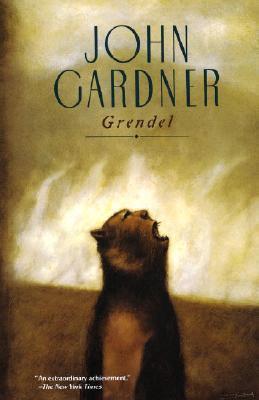Chapter 2
byChapter 2 introduces Grendel, a creature struggling with profound isolation and confusion as he recalls his childhood filled with exploration and the yearning for understanding. His early years were spent wandering through a haunting underground world, engaging in imaginative games and coming across mysterious entities like the firesnakes, which guard a hidden, sunken door. This encounter marks a significant moment of change, symbolizing Grendel’s longing for identity and meaning as he steps into the moonlight, embarking on a quest to understand who he truly is. The moonlight, representing clarity and new beginnings, signifies the beginning of his self-discovery, even as he grapples with feelings of alienation. These formative experiences serve as the foundation of his identity crisis, as he continues his search for a purpose in an environment that constantly challenges his existence.
Grendel’s early life is portrayed as one of deep connection to his mother, despite the apparent indifference in her gaze. He feels an innate bond with her, yet this connection is fraught with contradictions, as he also experiences a growing sense of being an anomaly in the world around him. Grendel’s primal need for maternal comfort only intensifies his loneliness, making him question his place in the world. This complex relationship is further complicated when Grendel is trapped in a tree trunk, resulting in a painful injury. In that moment of vulnerability, he cries out desperately for his mother’s help, underscoring the tension between his desire for protection and the harsh realities that threaten his existence. These moments of awakening force Grendel to confront the uncomfortable truths about the world he inhabits, where safety is never guaranteed, and survival is a constant struggle.
As Grendel begins to explore the world around him, he becomes aware of other creatures—humans—who observe him with fear and confusion. The humans mistake him for something unnatural, interpreting his existence as a strange growth or a spirit of the tree, reinforcing his sense of otherness. Their reactions are a mix of terror and bewilderment, with their conversations revealing their inability to comprehend Grendel as an individual. This misunderstanding of his nature leads to chaotic interactions, as the humans speculate about his identity and what threats he may pose. Grendel, observing them from the shadows, is confronted with their fear and their inability to understand him, highlighting the divide between his world and theirs. Their theories and misconceptions only deepen his sense of isolation, making him feel even more disconnected from the creatures he shares the world with.
The arrival of Grendel’s mother marks a pivotal moment in his transformation, as her protective and fierce nature evokes a visceral response from him. Her presence represents both safety and the terrifying reality of his existence, embodying the complex relationship between predator and prey. As the men scatter in fear of his mother, Grendel finds himself in a state of confusion and awe, observing the power she commands. Upon returning to his cave, Grendel reflects on the unsettling realization that his mother, once a source of comfort, now seems distant and unreachable. Despite his efforts to communicate his thoughts and emotions, his mother appears to have lost the ability to understand him, as she no longer responds to language. This moment serves as a metaphor for Grendel’s increasing alienation, as he struggles to bridge the gap between himself and those around him, including the one being he should be closest to.
The chapter concludes with a deep, contemplative moment where Grendel reflects on his sense of separation from both the universe and his mother. He comes to terms with the oppressive realization that he is trapped in his own existence, unable to fully connect with anyone or anything. His growing awareness of this isolation forces him to grapple with the nature of existence itself, as he questions whether his life has any true meaning. Grendel’s internal struggle highlights the complexities of being, as he contemplates the existential void that seems to surround him. His journey is one of constant questioning and self-reflection, caught between the primal instincts that drive him and the deep philosophical inquiries that emerge from his consciousness. This chapter reveals the complexity of Grendel’s character, as he faces the darkness of his world and the disconnection that defines his existence.

